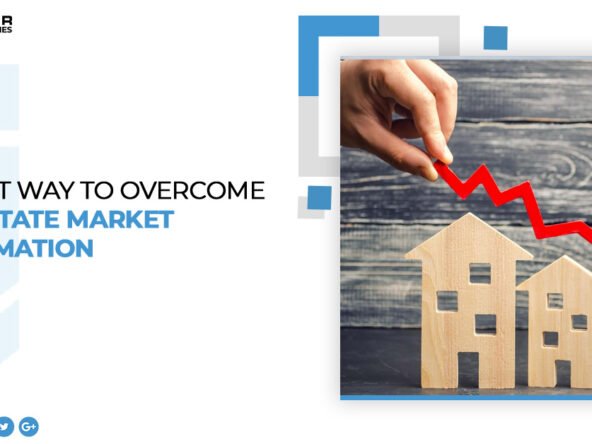RENTING VS BUYING A HOUSE
INTRODUCTION
Are you confused about renting vs buying a home? Just so you know, there is no definitive answer to this age-old conundrum. Your decision should depend on your personal and financial situation. Along with the current market trends and economic situation. So, to put it simply, the answer to your renting vs buying problem is that ‘it depends.’
Like everything else, there are advantages and disadvantages associated with buying a house or an apartment and renting one. However, before you make a decision, you must first figure out what you really want and what you can realistically afford.
RENTING VS BUYING QUESTIONS YOU SHOULD ASK YOURSELF
Before we discuss the advantages of renting a house vs buying one. There are a few questions you need to ask yourself. This, this will help you figure out which of these options work best for your situation.
Remember, there is no right or wrong answer. Ask yourself these questions:
- What is your current budget?
- What are your long-term career and family goals?
- How long do you want to live in the area?
- Do you prefer stability over flexibility or vice versa?
- Will you be able to pay for home repairs and maintenance?
- How much money you can invest in a property?
- How many people will live there in the not-so-distant future?
- If you actually want to live in that area for more than a few years?
These are some of the most important things that you need to consider.
Once you know for sure how much money you can spend. Whether you can keep up with the maintenance and repair costs that come with owning a property. Hence, you can go ahead and make your final decision.
While you figure out where you stand on the renting vs buying spectrum, you can take a look at some of the advantages of renting a house as well as buying one.
ADVANTAGES OF RENTING A HOUSE
-
Fewer costs and responsibilities
When renting a home, you’re only responsible for paying your monthly rent and any utilities that aren’t included. Moreover, you’re not on the hook for typical homeowner-related costs. For instance, property taxes, home maintenance, or repairs. If a screen door breaks or the roof springs a leak, you can simply call the landlord to have it fixed. Hence, with no money out-of-pocket.
-
Lower upfront costs
Purchasing a home comes with a whole bunch of upfront costs that you won’t have to pay for a rental. In fact, some rental properties have no upfront costs at all. At most, you may have to pay an application fee and/or a security deposit before you move in. However, application fees vary from state to state but are typically less than $50. A security deposit is usually between one and three month’s rent, depending on where you’re looking to move.
Keep in mind, you should be able to get your security deposit back. As long as you keep the property in good condition. If you’re expected to pay your first and/or last month’s rent in advance, then your money’s not going to waste. Either, you’re simply getting ahead of future rent payments.
All in all, the upfront costs associated with moving into a rental property are much less than what it costs most homebuyers for a down payment, closing costs, and property taxes.
-
Relocation flexibility
Because owners design the rental leases for the short term, you’re not tied down if your life circumstances suddenly change. For example, if you want to take a job opportunity in a new city, it’s much easier to break a lease than it is to sell a home.
-
Less Paperwork
Needless to say, there is way less paperwork associated with renting a home compared to buying one. Of course, you’ll have to sign a tenancy agreement that will protect your rights as a tenant. As well as those of the landlord, but apart from that, you won’t have to worry about any other paperwork or file any documents.
Moreover, those living in rental properties don’t have to pay for property insurance either. It’s solely the owner’s responsibility.
-
No Home Maintenance Cost
Tenants don’t have to worry about repair and maintenance costs. As the landlord will have to pay for them. However, tenants might have to pay a certain amount in case of any damage to the property or as specified in the tenancy agreement.
-
No Need to Pay Property Tax
Apart from paying the rent and utility bills, tenants don’t really have to worry about any other property-related costs. Whether it is the homeowner’s insurance or property tax, the landlord is the one who will pay the taxes.
DISADVANTAGES OF RENTING A HOUSE
There are also a few downsides of renting a property.
-
Lack of Stability: Owners can force the tenants to move, no guarantee the agreement will be renewed
-
No Equity
-
Rules and restrictions
-
Rent increments
-
Moving expenses
Here is a detailed explanation of the disadvantages.
- Lack of Stability
If you’re looking for stability, renting a home is not the best option for you. Your landlord can force you to move out of your home on a short notice, which is often not enough to look for a new place that fits yours and your family’s needs. The situation can be even worse if you’re already going through a rough patch and don’t have enough funds to put down a down payment let alone bear all the other expenses that come with moving homes.
Even if your landlord doesn’t suddenly decide to force you out, there is still no guarantee that they will renew your rental agreement at the end of the year.
- No Equity
You can pay thousands and thousands in rent every month but still have no claim over the property.
Although paying rent is mostly cheaper than paying a mortgage, but at least those paying the latter have something to show for it down the road. Meanwhile, monthly rent payments don’t build up equity or grant you ownership. The money you pay your landlord is essentially gone as soon as you hand it over.
- Rules and restrictions
There are certain rules and restrictions that come with living in rental property.
First of all, you can’t renovate, remodel or re-decorate the place according to your preference. While some landlords might allow you to repaint the home or change a few things around, most of them aren’t too fond of tenants making changes to their property.
Secondly, some homeowners may not allow pets inside their home. So, even if a tenant really wants to adopt a cat or a puppy, they simply can’t do so without asking the landlord for permission.
- Rent increments
While tenants don’t have to worry about the appreciation or depreciation of the value of a property, they do have to worry about the possibility of a sudden rent increase. Even with some sort of rent control measure in place, landlords are free to increase the monthly rent when it’s time to renew the tenancy agreement.
This situation could be especially troublesome if you have a fixed monthly income and can’t afford to pay the newly enforced rent, which will ultimately force them to look for a new place.
- Moving expenses
This is probably one of the biggest disadvantages of renting a home.
Packing your entire life and moving to a new place is never easy, but the costs associated with the entire thing make it even more difficult. Apart from paying for the moving service, tenants also need to put down the down payment and clear their utility bills. Not to mention, if they relocate to a different area, they might have to change their children’s schools or spend more on transportation.
ADVANTAGES OF BUYING A HOUSE
Advantages of buying a house/ apartment include:
- Security and stability
- No Restrictions
- Opportunity to generate income
- Ownership
Let’s take a further look at each of these benefits of owning a home.
-
Security and stability
Owning a house or a flat gives you a sense of financial stability and security. No one can force you to move out of our legally owned property. In addition, you don’t have to worry about a sudden increase in the monthly rent. Even if you buy a house in instalments, the monthly or quarterly instalment remains fixed until the end.
If you are planning to start a family and have enough savings, buying a house is a great idea. Even if you start with a smaller place, you can always flip it for a profit and move into a better home a few years later.
-
No Restrictions
Being a homeowner, you have the complete freedom to knock down the walls to open up your living room. Likewise, paint the walls to your liking without having to answer to anyone. In addition, you can update fixtures, change the décor, fix up the garden. Moreover, do major remodeling work to suit your personal style and needs.
Once you buy a property, you also attain full creative control to alter and change it. However, just make sure that you are aware of the bylaws of the housing society you live in before you make any major changes in the layout.
-
Opportunity to generate income
Owning a home also allows you a great opportunity to generate income by putting it up for rent. If you have some vacant space, you can simply rent it out and earn some extra money while maintaining ownership.
-
Ownership
Buying a home is arguably the biggest investment you’ll ever make. It’s a big financial decision that comes with a lot of advantages. With the biggest being the sense of empowerment that it provides.
Homeowners don’t have to deal with landlords or a third-party and are free to make all of their decisions on their own. Even if you want to move to another place or a different neighborhood, you can simply sell the property and buy another one without worrying about the funds. In other words, buying a home is similar to having a long-term saving account.
If you’re planning to buy a house for yourself and your family, this article has everything that you need to know.
DISADVANTAGES OF BUYING A HOUSE
Here are some of the disadvantages that come with buying a home.
-
Requires a huge amount of money
-
Value depreciation
-
The added cost of maintenance and repairs
-
Less flexibility
Let’s discuss each of these drawbacks for better understanding.
- Requires Substantial savings
Buying a house requires a substantial amount of money. Even if you are buying it on instalments or plan on paying a mortgage. You still need to put down at least 20 percent of the entire cost as the down payment.
Moreover, there is also a lot more paperwork involved in buying vs renting a home. That includes change of ownership, sales deed, property insurance and much more. In addition to that, a homeowner also needs to pay property tax.
- Value depreciation
Generally, the value of houses and buildings depreciate over time due to old construction style, outdated design and general wear and tear. This means to flip the house for a profit, you’ll first need to invest money and time into upgrading it. Of course, the location of your property also plays a huge part in this. As the value of houses in popular residential areas does not tend to depreciate as quickly as those in other areas.
- Cost of maintenance and repairs
As the saying goes, owning a home comes with a lot of responsibilities. Whether you are buying a recently constructed house or an old one. Somehow, you are bound to face maintenance and repair issues popping up within the first few months of purchasing the property.
From updating the light fixtures to fixing pipe leaks, homeowners need to bear the cost of all major and minor renovation work all by themselves. Of course, you can save up some money by going the DIY route, but you can also end up making things even worse.
- Less flexibility
As opposed to renting a home, buying one limits your options to move around or explore job opportunities in different cities. While a tenant can leave their home after serving a notice to their landlord. A homeowner needs to go through an extensive number of steps to put their house up for sale. They also need to wait patiently as potential buyers visit the property. Moreover, they have to negotiate the selling price before finally reaching an agreement. This can take up to a few months at the very least.
CONCLUSION
Needless to say, when it comes to renting vs owning a home, there are pros and cons associated with both. While your financial situation plays a huge part in deciding the right choice for you, it’s not always about money. You also need to evaluate your personal goals while deciding if it is better to rent or buy a home and see what could be better for you in the long run.
If you are still not sure between renting vs buying a home, you can check out Landster Blog https://landster.pk/2020/11/30/a-guide-to-real-estate-why-investing-in-real-estate-is-a-good-option/ . Furthermore, here is a complete guide for commercial investment https://landster.pk/2020/12/15/6-best-commercial-real-estate-investment-opportunities-in-twin-cities/.
For more blogs related to property, investment and real estate please visit https://landster.pk/blog/




